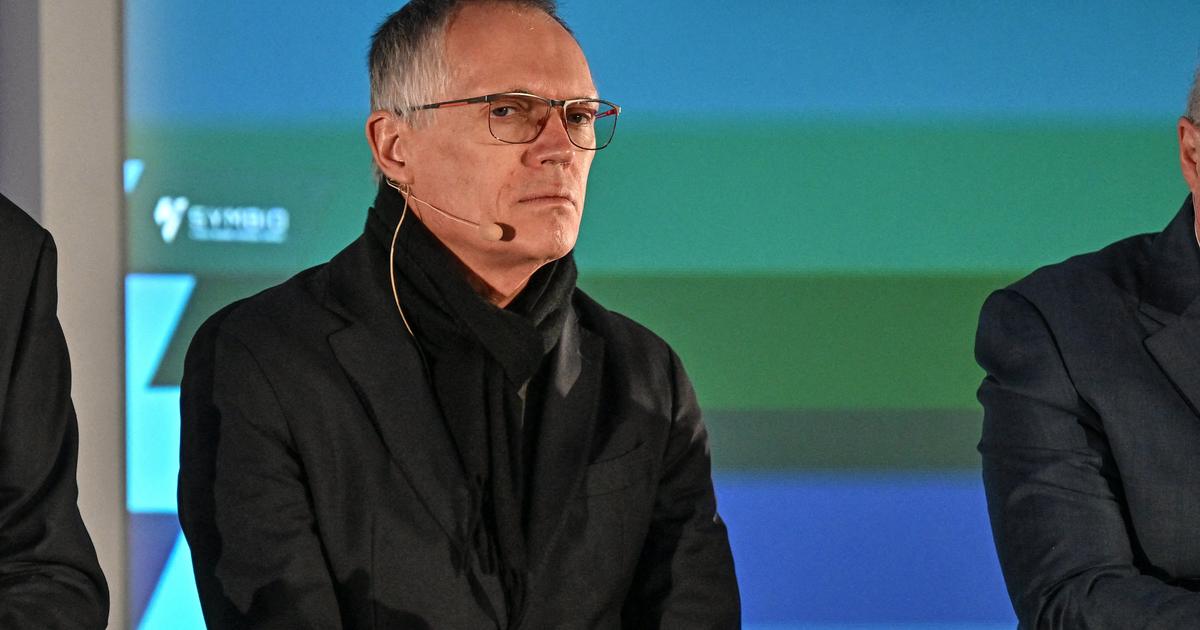- Click to share on Facebook (Opens in a new window)
- Click to share on Twitter (Opens in a new window)
- Click here to share on LinkedIn (Opens in a new window)
- Click to email a friend (Opens in a new window)
London (CNN Business) - Carlos Ghosn was once considered in Japan as a titan of the automotive industry, the charismatic head of the iconic automakers Nissan and Mitsubishi Motors. If he was not one of the most recognizable faces in the country then, he certainly became one when he was spectacularly fired after being arrested in November 2018 on suspicion of financial misconduct.
The terms of his bond of 1.5 billion yen (US $ 13.8 million) required him to remain in Japan before his trial, established for 2020. Considered as a risk of escape, Ghosn's three passports were confiscated, maintained by his team of defense so that he could not leave the country. Even then, he was placed under strict surveillance and was subject to restrictions on the use of phones and computers.
If he could not leave his Tokyo apartment to buy a carton of milk without anyone knowing, how did he manage to flee the country?
In the absence of concrete facts, there has been much speculation. One of the most extravagant theories that emerged in the Lebanese media was that it was hidden in a box designed for musical instruments, after a private performance at home by a group of Gregorian music.
Or, were the circumstances of his escape more ordinary, and he mocked Japan with the help of a false passport, as the French news newspaper Les Echos reported? (One of the three passports held by Ghosn was French.)
Whatever the truth, and Ghosn himself gave no further details in a statement that attacked the "manipulated Japanese justice system," such an escape would have required elaborate planning, and not at all negligible resources. Junichiro Hironaka, the lawyer representing Ghosn, said he must have had the help of a "large organization" to have fled.
What seems certain is that, in one way or another, he evaded surveillance in Tokyo. Ghosn certainly has a way of disguising himself: when he left prison after being released on bail, he appeared dressed as a maintenance worker, in an apparent effort to evade the media. (He did not succeed.)
Then comes the question of how he left Japan. The Wall Street Journal said that Ghosn arrived in Lebanon through Turkey, a version of the events corroborated by the French media Les Echos, among others. This was backed by data from the Flightradar24 flight tracker, which shows a private plane flying from Osaka, Japan, to Istanbul, Turkey, and then another that continued to Lebanon at the time it is said that Ghosn arrived in the country.
Whatever the form of his departure from Japan, his arrival in Lebanon, where he grew up after his family moved from Brazil, seemed much more conventional.
Ghosn arrived in Beirut at dawn on Monday, and apparently landed from Turkey without even raising a Lebanese eyebrow. "Carlos Ghosn entered Lebanon legally yesterday at dawn," Lebanon's foreign ministry said in a statement reported by the country's national news agency. "The circumstances surrounding his departure from Japan and the entrance to Beirut are unknown and all that is said about this is a private matter [related to Ghosn]," the statement said.
Surprise and anger in Japan
In Japan, meanwhile, there was dismay. Hironaka told reporters on Tuesday that his client's flight from Japan was a "complete surprise."
"We are baffled and shocked," he said, explaining that Ghosn did not have his passports and "could not use them."
Masahisa Sato, legislator for the ruling Democratic Liberal Party (LDP) of Shinzo Abe, said Ghosn had mocked bail. "If this is true, it was not 'leaving the country', it was an illegal exit and an escape, and this in itself is a crime," he said, according to AFP.
“Was there help extended by an unidentified country? It is also a serious problem that Japan's system allows an illegal exit so easily, ”said Sato, a former Minister of State for Foreign Affairs.
There was also rage in France, where Ghosn had designed a complex and sometimes awkward alliance between Nissan, Mitsubishi and the French automaker Renault. The French government was "very surprised" that Ghosn had left Japan, economics secretary Agnès Pannier-Runacher told France Inter radio. Ghosn "is not above the law," he said, adding that "if a foreign citizen fled from French justice, we would be really upset."
Safe in Beirut, Ghosn issued a statement saying that "I had not fled from justice, I have escaped injustice and political persecution." He is unlikely to be forced to return: Lebanon does not have an extradition treaty with Japan. In any case, Lebanon has many problems of its own: the country is immersed in a political and economic collapse, and it is likely that entering a complex extradition process is down from its list of priorities.
Members of the press wait outside a residence in Beirut identified as Ghosn's property. (Photo by ANWAR AMRO / AFP via Getty Images)
In his statement, Ghosn said he hoped to communicate "freely" with journalists from next week.
Perhaps I could explain how he managed to escape the decade.
Carlos Ghosn









